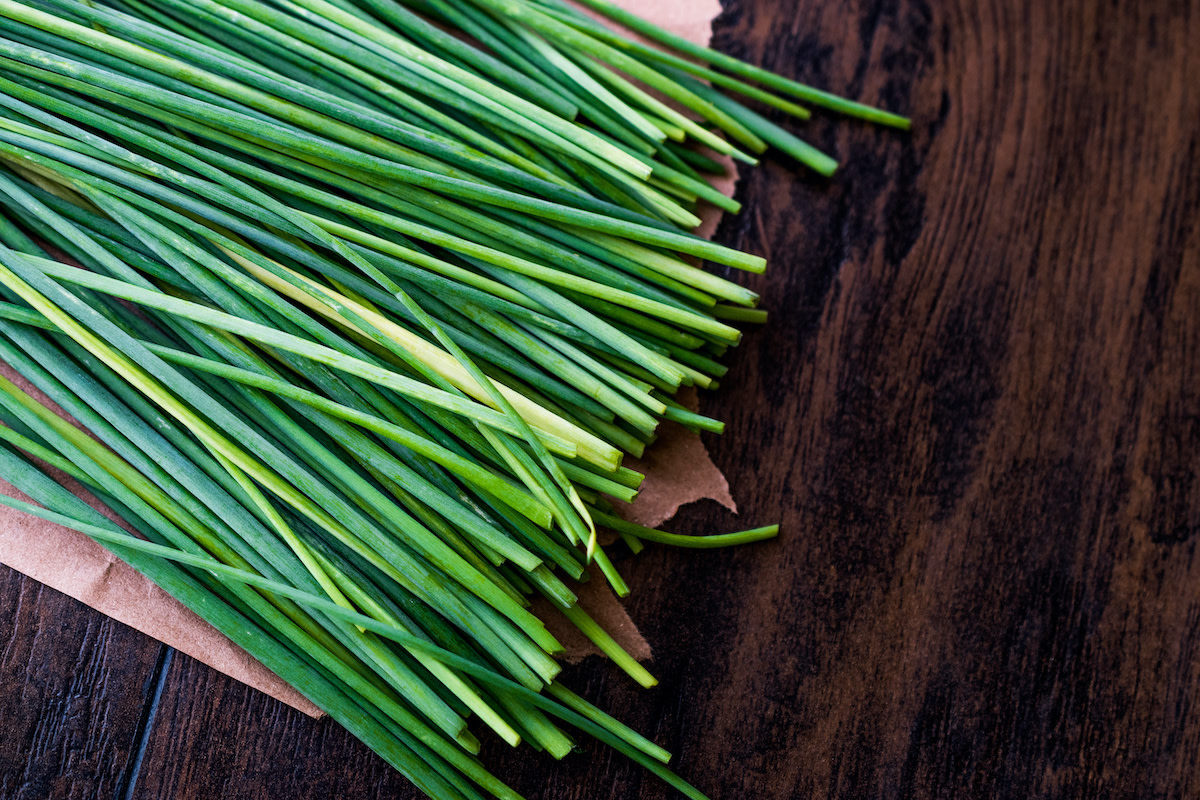How to Store Chives: 3 Simple Ways to Store Chives
Written by MasterClass
Last updated: Dec 16, 2021 • 3 min read
Whether grown in your herb garden or bought at a supermarket, fresh chives add bright, vegetal flavor to a wide array of recipes. Learn how to properly store fresh chives and use the herb in recipes all year round.
Learn From the Best
What Are Chives?
Chives (Allium schoenoprasum) are a thin, grass-like member of the allium family, which also includes garlic, scallions, shallots, and leeks. With a subtle oniony flavor, chives are one of the most widely used garnishes in the world and can be found in most grocery stores and farmer’s markets. Chive plants also produce edible purple flowers known as chive blossoms, which are typically trimmed during harvest. Home cooks commonly add chives to hearty soups, stews, and baked potatoes.
How Long Do Chives Stay Fresh?
If you plan on using fresh chives within four to six days, they can be safely stored at room temperature. However, your chives will remain crisp for ten to fourteen days if stored in the refrigerator. Frozen chives can be stored in the freezer for four to six months. Dried chives have the longest shelf life and can be stored at room temperature for two to three years without spoiling. Spoiled chives are easy to spot. If they turn brown or yellow, develop an unpleasant odor, or are slimy to the touch, the chives have expired.
How to Store Chives
There are several food storage methods that will effectively extend the shelf life of fresh chives.
- 1. Refrigerate fresh chives. Whole and chopped chives can be stored in the refrigerator for several days. Wash chives right before use, as any extra moisture can make them turn soggy in the refrigerator. There are several useful methods that can help keep chives at peak crispness in the fridge. You can wrap them loosely in plastic wrap and store them in the crisper drawer. Alternatively, you can also wrap them in a damp paper towel and store them in a plastic bag or airtight container. Use refrigerated chives within ten to fourteen days.
- 2. Freeze chives. Freezing chives is great for extending their shelf life by several months while maintaining their vibrant green color. Prep your chives for the freezer by washing them under cool water. Use a salad spinner or dry paper towels to remove extra moisture. Finely chop the chives. Next, you have two options: you can freeze cut chives in ice cube trays or on a parchment-lined cookie sheet. To freeze chives in ice cube trays, evenly distribute the chives in the compartments of the tray and fill them with water. Once frozen, remove the cubes from the trays and store them in a freezer bag. Alternatively, line a baking sheet with parchment paper and spread out the cut chives in a single layer. Allow the chives to freeze completely. Once frozen, store the chives in a freezer bag or mason jar. Use frozen chives within four to six months.
- 3. Dehydrate chives. Dry herbs can be kept in a cupboard at room temperature for several years without spoiling. Drying or dehydrating chives involves removing all the moisture from the fresh herbs so they can be kept safely in long-term storage. Though effective, be advised that dried chives tend to lose their color and take on a woody texture. To dry chives, preheat your oven to its lowest temperature (preferably no higher than 185 degrees Fahrenheit). Wash, dry, and finely chop the chives. Line a baking sheet with parchment paper and spread the chives out in a single layer. The total time it takes to dry the chives will vary, so keep a close eye on them to make sure they do not burn. Remove the chives from the oven when they easily crumble between your fingers—typically within one to two hours. Store them in an airtight jar in a cool, dark place for two to three years.
Want to Learn More About Cooking?
Become a better chef with the MasterClass Annual Membership. Gain access to exclusive video lessons taught by the world’s best, including Gordon Ramsay, Gabriela Cámara, Chef Thomas Keller, Dominique Ansel, Yotam Ottolenghi, Alice Waters, and more.
